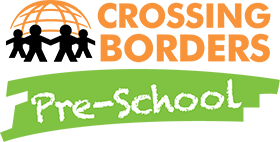Raising a child to be multilingual in a monolingual home is a unique challenge on top of all the challenges to simply raising a child. Choosing an immersion preschool is an excellent step in jumpstarting your child’s language learning but being able to reinforce the skills they learn at school in the home helps your child to grow the language pathways. Check out these five ways that you, as a monolingual parent, can help reinforce foreign language skills at home.
Check Out Children’s Audio Books From The Local Library.
You may not be able to speak a foreign language but you can still enjoy story time with your children. Many libraries carry not only audio books for children but also audio books in other languages. This makes it easier for you as you don’t have have to try and pronounce words you are unfamiliar with. You are able to follow along with your child and enjoy the story as well. This is a great opportunity for your child to also reinforce vocabulary they have learned by teaching you words from the story.
Play Music In The Home.
Immersion preschool uses games, music, and play in order to teach languages. In the home, simple ways to continue this education is through music. Whether through children’s music or more classic music from the language your child is learning, they will pick up on plenty of words and context. This gets them hearing the sounds that are essential in language learning as they grow.
Watch Movies They Know In Another Language.
For those of us who learned a foreign language in high school, you probably remember the days when a substitute teacher put in a Disney video dubbed in another language. This is an excellent approach for parents who may not know another language but what to let their children learn and grow. Pop in one of their favorite DVDs that they know well and change the other language settings. You can also consider allowing English subtitles with older children but if they know the movie, they shouldn’t need them.
Find Support And Allow Your Children To Interact.
One of the biggest challenges of learning a second language is having people to practice with. That’s one of the greatest benefits of immersion programs like our preschool. However, it’s important for children to interact with a variety of people. Looking into cultural groups, find families that speak the language, or skype with friends that are fluent. All these activities allow your child to practice their skills with individuals of all ages.
Take The Time.
Unfortunately, a child’s learning of a second language won’t just magically happening. It takes a lot of practice and needs to be made a high priority in the home as well as during immersion schooling. This doesn’t mean that you have to spend all day working on the second language, but try working in ten minute time increments on a regular basis to help any new concepts stick.
Immersion language learning at school is the first step in many that help start your child on the path to becoming bilingual. Just because you don’t know a second language doesn’t mean that there aren’t many things you can do to help reinforce what your child learns in school. Contact Crossing Borders Preschool for more help in jumpstarting your child’s education.




